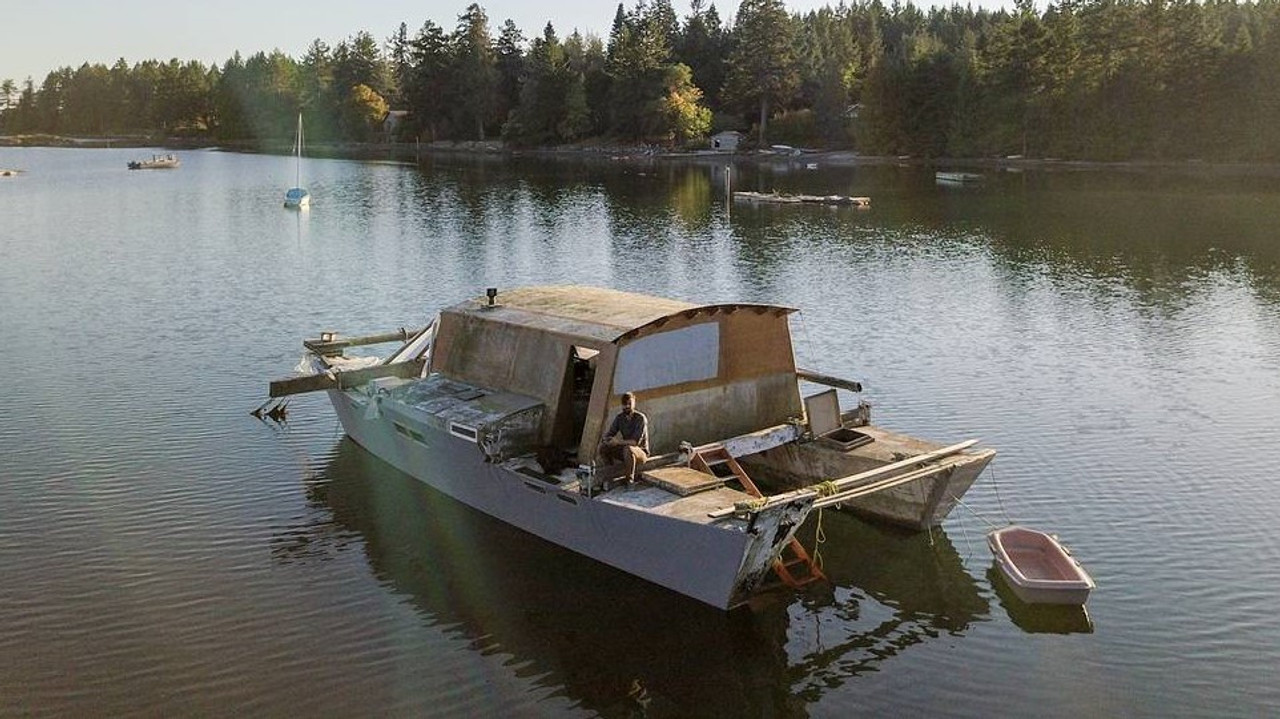Sink or Swim --Simon’s 5 years journey of building the epic off-grid solar-powered catamaran
All photos by Simon Stiles @finding_simon
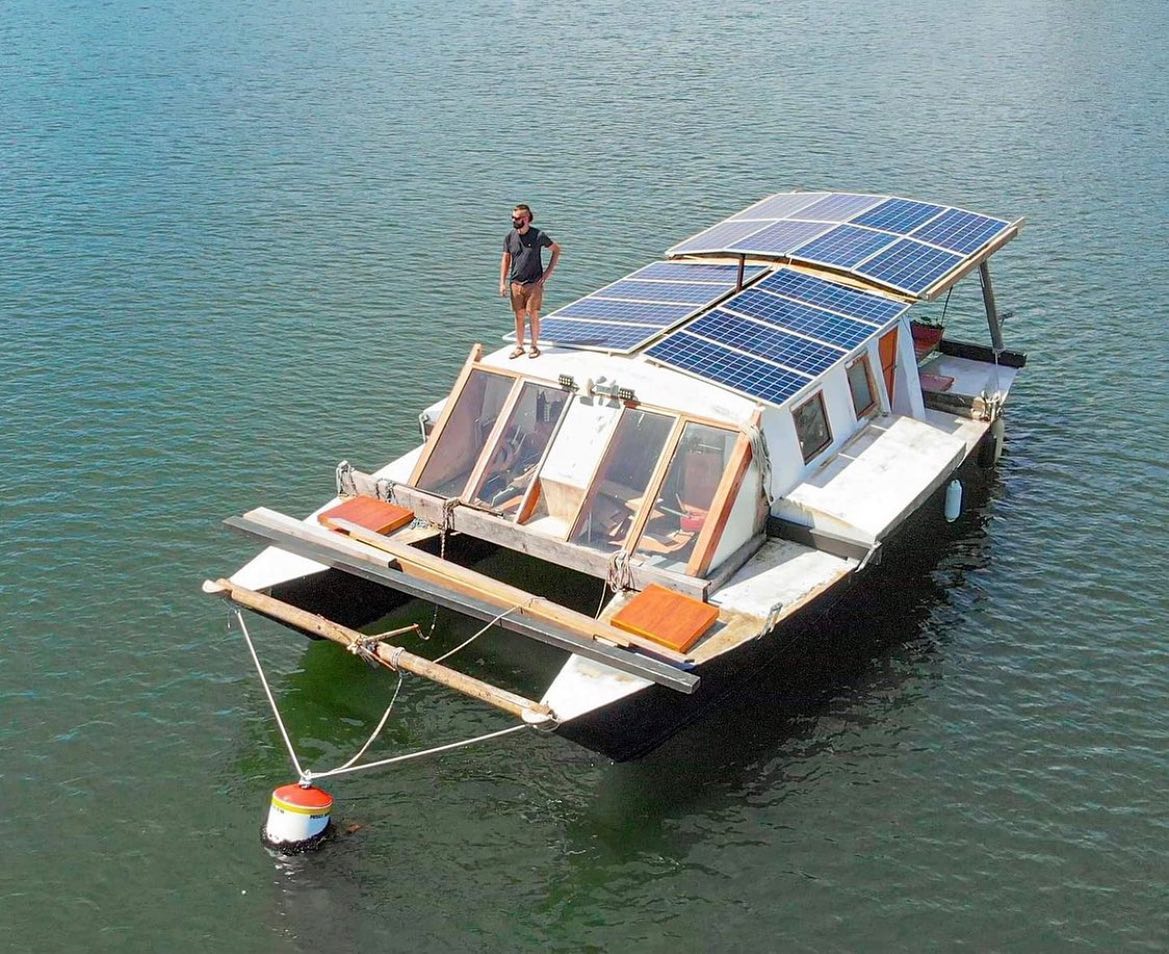
(Simon and his fossil fuel free solar sailing catamaran)
Simon’s adventure started with a leap of faith of trading in his amazing off-grid RV home and motorcycle to purchase the 1976 Wharram Oro 47, which had been around the Pacific three times with his fossil fuel free solar sailing catamaran Old Dog. “It is like a paradise to see sea otters or seals in my dinghy when I woke up.” That is how Simon described life living on a catamaran.
Before that, Simon spent two years traveling around North America in a camper van and took a year to travel on a motorcycle with his lovely and trusted pitbull Honey. However, one day he set out on a project of cruising for fossil fuel free and began his adventure of the sea.
Starting with the purchase of a “shipwreck”, Simon turned it into a cozy catamaran with four berths and a large kitchen after doing a number of works, such as replacing keels of the boat, painting it off and replacing every square inch of deck. To propel the boat without the using diesel or fossil fuel, he chose solar panels and wind turbines to generate power. In Simon’s view, the choice of solar panels is not only for doing something with the environment but also convenient enough for long crossings with the limit of the tank. Dedicated to sustainability and money-saving, he also purchased cheap, broken and secondhand equipment, like washing machines, and fixed them to use on the boat.
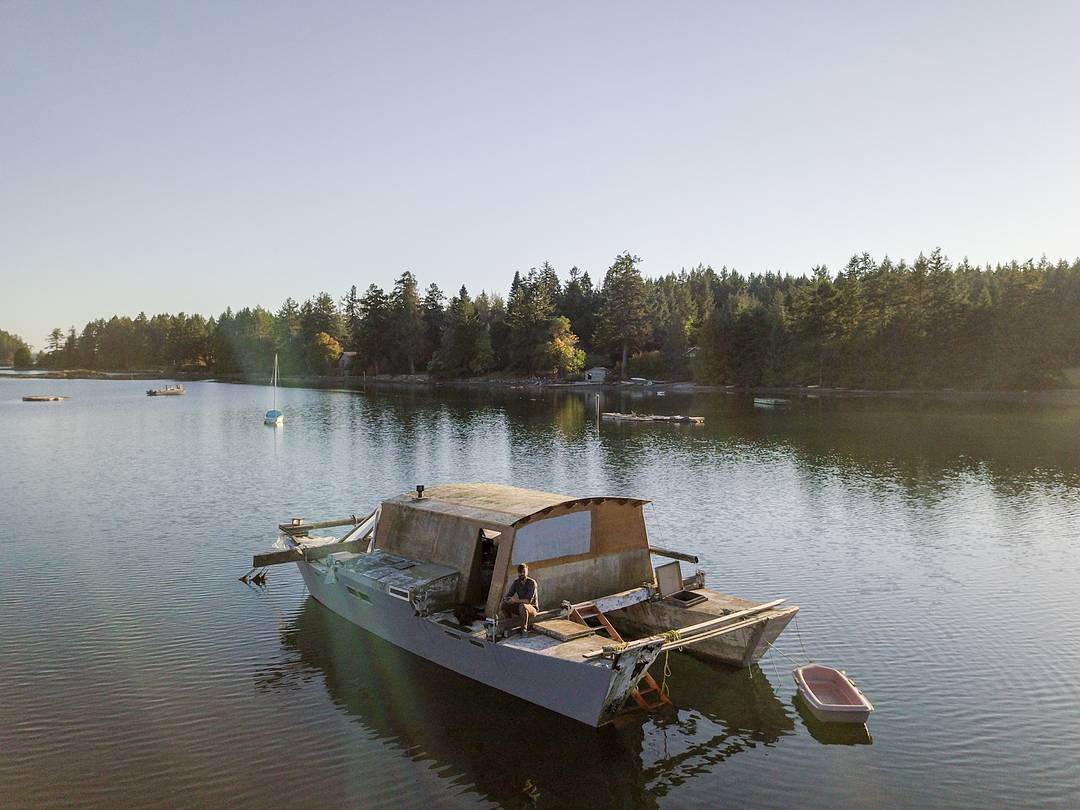
(The Old Dog catamaran before rebuild)
Simon has been on this boat for about five years, during which the catamaran was rebuilt again and again. Noticing that he has purchased a few of our products and has a similar view of clean energy with our company, we were fortunate to do an interview with Simon and listen to his story.
What inspired to go off-grid?
Tired of working in the architecture world, he decided to launch into his site career and did photography, leading him to raise courage to step out to travel in a van and make a youtube channel, where he got the fund to pay for this project.“I needed the freedom to control my life, and traveling, being nomadic and making videos made it possible.”
How much power is generated on the boat every day?
“I think it is 6240 watts of solar panels on the boat, and I also have a 20 kWh battery pack and wind turbines.” Solar generation each day is enough to support his daily electric demands for running ovens, a washing machine and other household appliances. Based on that, the battery pack is for fast-moving when cruising. However, little solar power will be generated on rainy days for a weather-dependent system, so if rain comes with wind, turning to wind turbines could also generate almost the same amount of solar power. Hopefully, the downside of solar power could be overcome by balancing of the two clean energy.
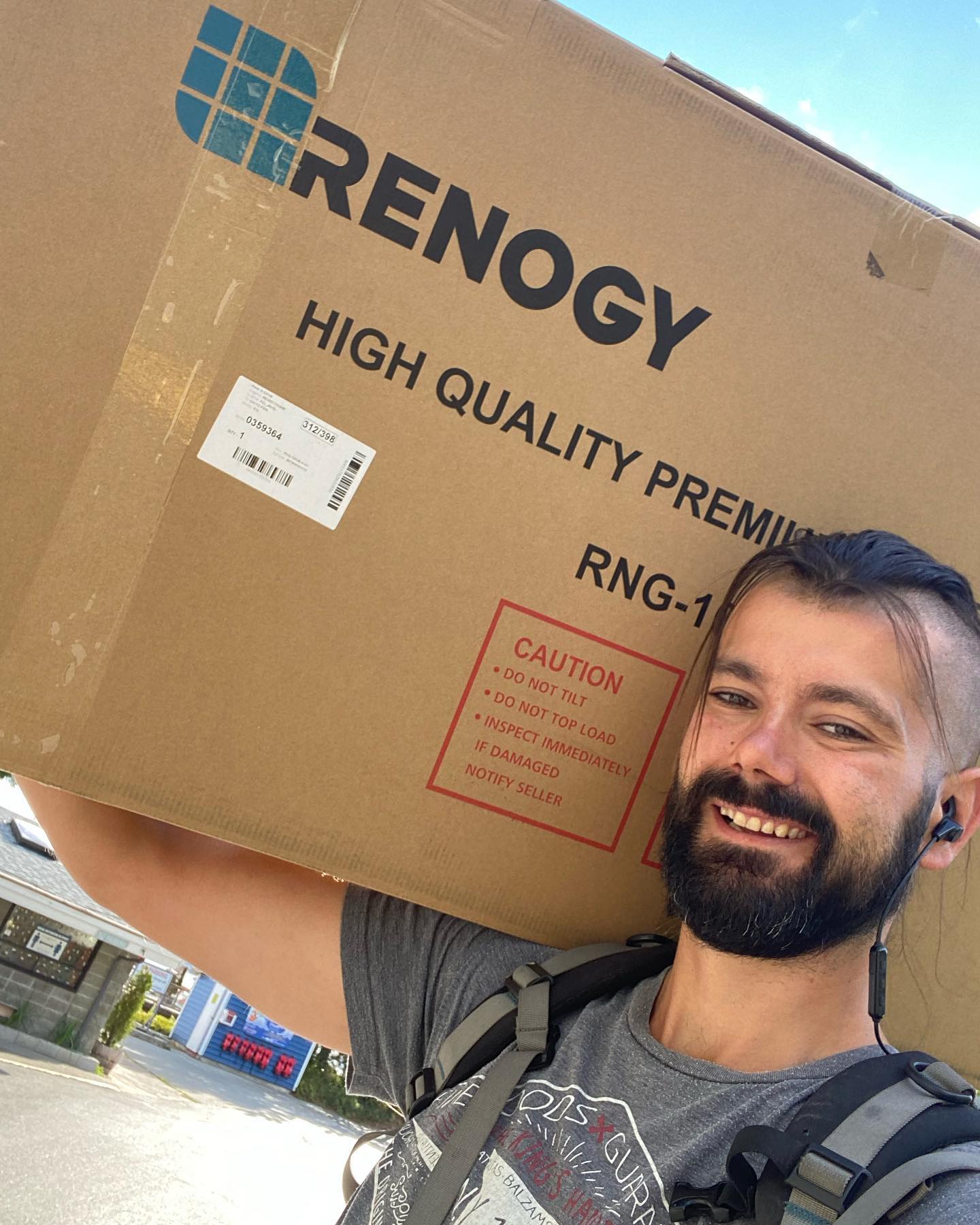
(Simon holding Renogy solar panels on his shoulder)
When is the next cruise?
“I am setting sail and making arrangements for it. The steering needs to be finished, and I am ready to start testing the electronic power systems. Calculations do not represent reality.” He also told us that due to COVID-19, he didn’t host anyone on board for quite a while but enjoyed nature around his boat when others were stuck at home.
What is a typical day for you, like your daily routine?
As a morning person, Simon is used to getting up around 6:30. However, before 8 a.m., to avoid making any noise, he always spends that time editing extremely well-crafted Instagrams or Youtube feeds, which provide audiences gripping insights into his adventures, and then has breakfast. About organizing his projects, “it depends on what project I am working on and the weather.”
Simon has said that life on a boat involves harsh winters and idyllic summers. In winter, the system generates less power due to less sunshine duration, so he has to work as efficiently as possible in the daytime.
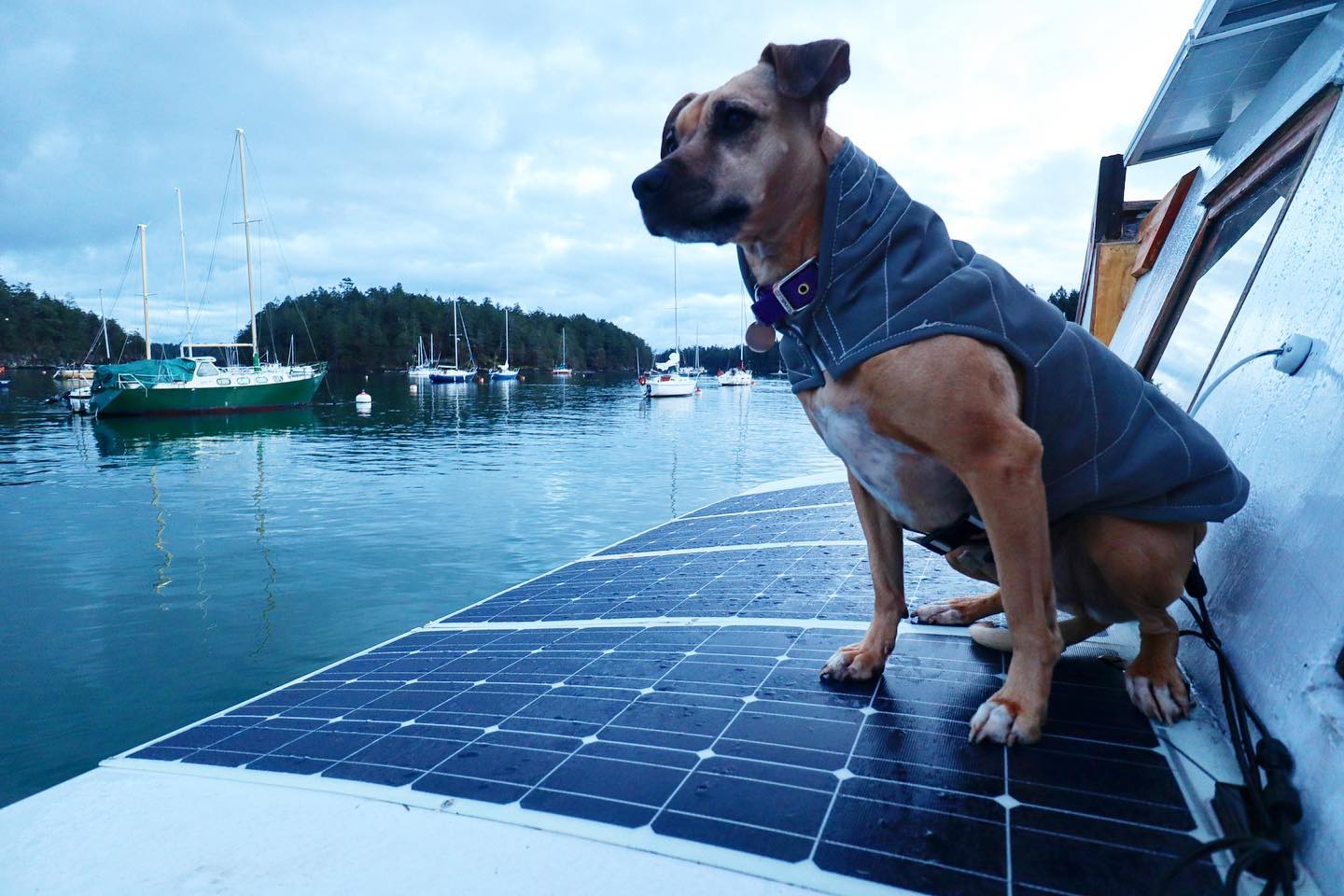
(Honey stands on top of Renogy flexible solar panels.)
Is there anything surprising or unexpected that occurred during this project?
When he set out to do this project, Simon thought it would take only six months to complete, while now it has been nearly five years. It has indeed been a long time. For instance, it took two weeks to pull his boat out of the water, then Simon painted the boat and replaced the heels and main timbers, which he didn’t anticipate doing. Impressively, his fans lent a hand and worked for 12 hours or even 14 hours a day during the project, without which he could not have done it, and Simon appreciated his friends.
Moreover, this project changed his personality and taught him a set of skills, such as TIG welding, woodworking, fiberglass work, and engine work. Learning humility, Simon became more patient and calm.
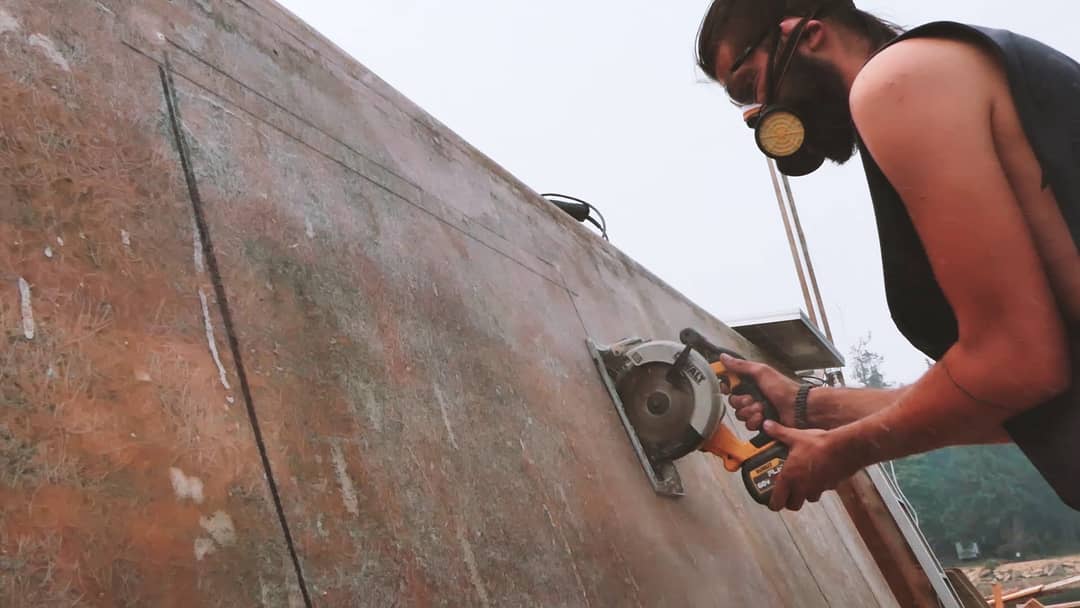
(Simon cutting side panel of his boat)
How did you get to know Renogy?
When Simon searched for solar stuff, Renogy ranked on the first page, so he noticed us. The first Renogy product that Simon bought online was a charger controller when he set up a solar system on his camper van, whose features satisfied all his demands at a low price. He also purchased our curved solar panels and praised them for the aesthetic appearance, easy installation and simplicity of his whole system. Recently, he owned a 48V Renogy inverter charger as an affordable whole home off-grid inverter.
What particular advice do you have for someone seeking to go off-grid or wanting to start their boat/van life?
Firstly, “I hope they get the idea that they don't have to be an expert on everything before they set out because they can learn along the way and do whatever they want to do.”
The second advice is to “get the smallest boat that you can handle.” Though a larger boat could hold more friends, Simon explained that he has regretted getting a 15-meter long catamaran, as a twin-hulled vessel requires much more work. More than that, he added that if your goal is to get out and travel by the boat, a smaller one means it is much easier for you to sell and buy boats while moving around the world.
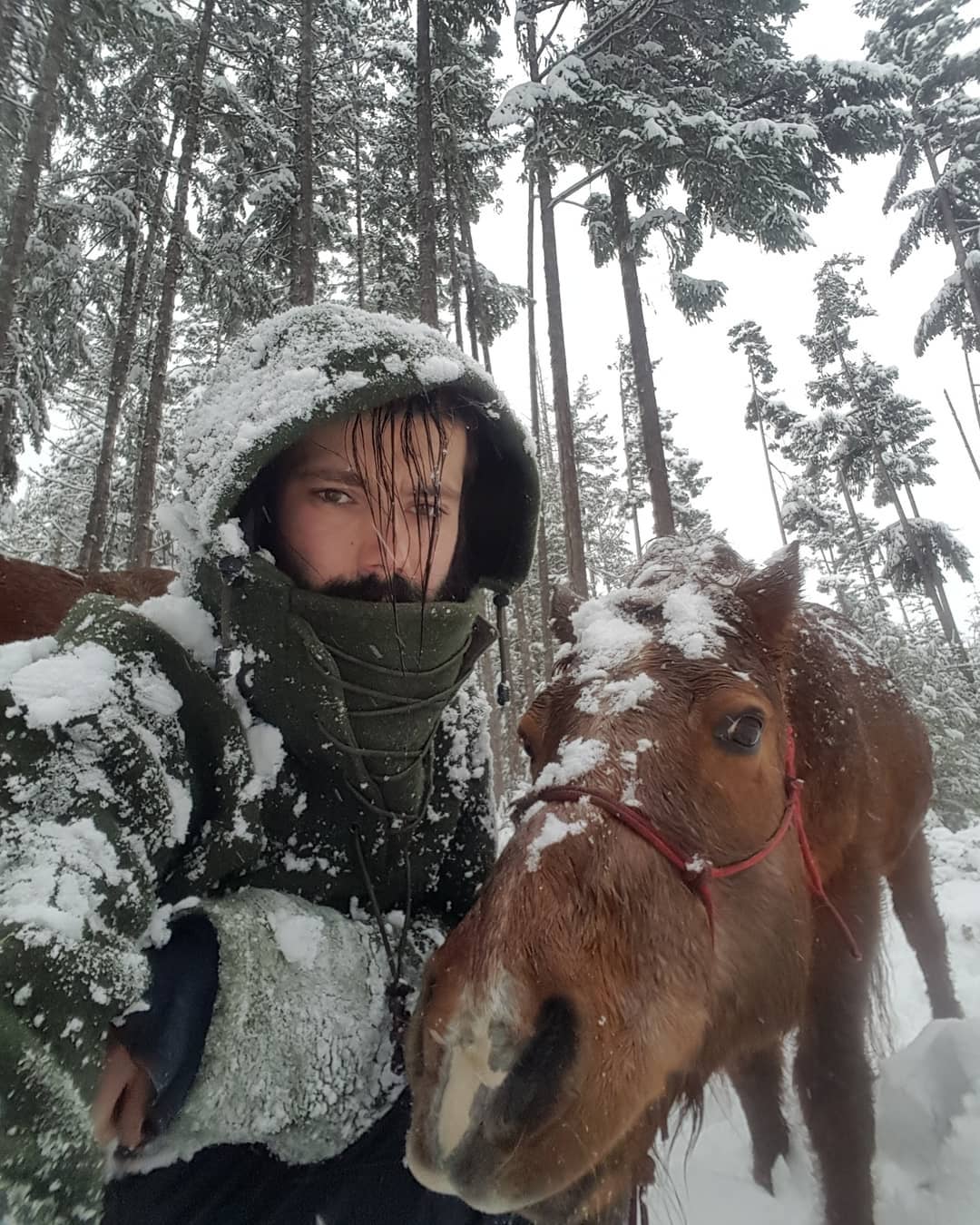
(Simon’s travel pic before he settled down for the ship build)
Is there a moment when you would like to move back to the city and restart an on-grid life?
“I think life is full of chapters. There's definitely another chapter coming after this one.” Even if Simon would like to settle down, he would choose a tiny house or a cabin so that he could continue to travel most of the time.
The beginning of his journey might be like what he always wrote in titles—sink or swim, but now it is not. All his hard work and dedication paid off when he heard the fish jump out of the water or stood on the deck watching the sunset. Simon will keep going forward.

